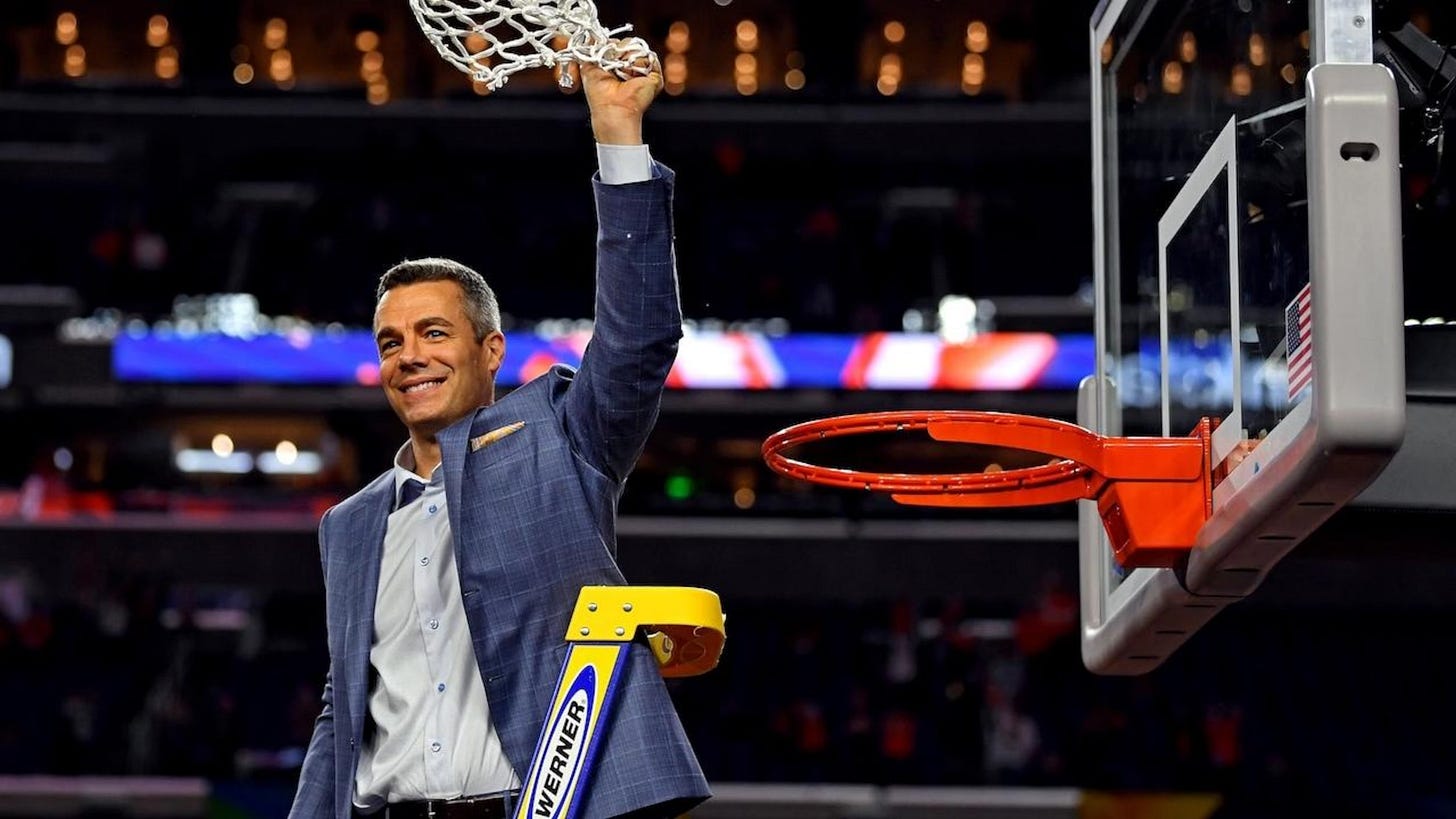College basketball changed. Tony Bennett did not
For Virginia's greatest ever coach, loving the sport was no longer enough
Tony Bennett has a way of looking uncomfortable. He winces. He squints his eyes.
He was never big on giving interviews in the first place, if he could avoid it, much to the chagrin of the local press, who would grumble and lament the long offseasons they'd go without hearing from him. But postgame press conferences and sideline reporters couldn't be avoided. In those compulsory moments Bennett has always looked like a lightly awkward midwestern introvert who had come to accept that an important part of his lucrative gig involved talking with strangers and interfacing with the public and thus regularly subjecting himself to a very low-grade dose of psychic pain.
It was a small anguish. He never complained. He gave honest, insightful answers. He grinned and bore it. But the grin often looked like a grimace.
Bennett never looked like that on the sidelines. There, standing with his arms crossed inspecting his team's pack-line rotations, or gathering his players around the clipboard for a quick-hit timeout set, his eyes were always wide open. In the game he looked safe, at home.
His players tell stories about him: Yes, he's that nice. Yes, he's that earnest. No, he never swears. And yes, trust us, you've just got to believe us here: He's an absolutely ruthless competitor, whether it's shooting practice or ping pong, his retreating politeness masking a ferociously stubborn will to triumph on his own terms.
This dichotomy drove Bennett's incredibly successful coaching career. It is what brought him into the sport in the first place, what made him think he could win in the unique way he devised. It is what fueled Virginia's rise as an annual ACC power, what brought the school its first ever national championship, what made Bennett one of the best and most respected figures in his profession.
It is also, as of this week, what made him take an almost unthinkable decision: to leave coaching at the age of 55.
Bennett always loved the purest parts of his job: the competition, the gym, his players, the mentorship, every season's shared journey. Lately, he disliked almost everything else about it — things far more profound than the occasional question about pace of play. He felt the world he once knew spiraling away from him. He decided to snip the tether while he still had a say on when and how.
"Will I miss the game?" Bennett said. "Do I love the game? Absolutely. But I don't think I'm equipped in this new way to coach, and it's a disservice if you keep doing that.
"I'm a square peg in a round hole."
It would be convenient if there was another easy answer to the question — "What?! Why?" — everyone has asked since news of Bennett's decision suddenly broke Thursday. It would be nice to have some counterintuitive take. And there was some ulterior reasoning at Bennett's press conference Friday, his obviously heartfelt desire to get off the road and out of the gym and be a better husband, father, brother, son.
But Bennett, through tears, before he was even asked a question, also stated explicitly his true reasons for leaving, the same ones everyone already knew.
"The hardest thing to say is when I looked at myself and I realized I am no longer the best coach to lead this program in this current environment," Bennett said. "If you're going to do it, you have to be all in. You have to give everything.
"If you do it half-hearted, it's not fair to the university and to these young men," he said. "Looking at it, that's what made me step down. There's still a way in this environment. There's a way with (Virginia athletic director) Carla (Williams) and President (James) Ryan and the board to do it and hold to our values. But it's complicated, and I admit honestly that I'm not equipped to do it."
It is really as simple as that: College basketball fundamentally changed. Bennett did not.
Keep reading with a 7-day free trial
Subscribe to Buzzer by Eamonn Brennan to keep reading this post and get 7 days of free access to the full post archives.


